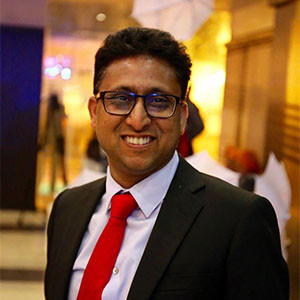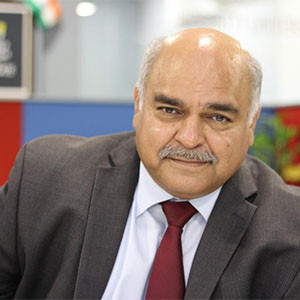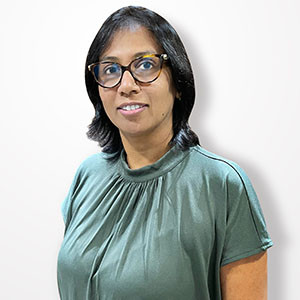How PR is helping healthcare industry fight misinformation during pandemic times
Healthcare as a sector has evolved, especially in the last 10 years. Healthcare communication was always been a challenge as earlier there were lot of restrictions from the Indian medical council when you communicate to your end audiences. The primary audience has always been the doctors, who were reached through the medical sales force of the pharma companies or through medical seminars, which were held at periodic intervals by various medical associations. But over a period of time, the industry has moved up and today it has become vast, growing and a promising sector, especially in the pandemic times. Industry leaders, government stakeholders, individuals and research experts are all viewing healthcare differently today as there are multiple challenges that the industry is facing.
Especially after the pandemic, the need for strong, effective and differentiated communication using PR and Digital as a tool has become very pivotal. The opportunity is huge and both healthcare companies and PR agencies need to collaborate closely and address several gaps in the healthcare business through a well thought out communication strategy. This also brings in a huge opportunity and responsibility for the healthcare companies to serve the society by providing the correct information and educating the people at large about the various aspects of health and the advancement in the medical ecosystem – both at the doctor and the patient levels. Globally, we are still fighting the pandemic and the recent rise in Covid cases has again partially disrupted the world. So, any credible educational campaign with the right messaging will help the world at large and instil confidence.
The pandemic has brought in a major shift in behavioural changes both at the doctor and the patient levels. With no seminars and conferences happening, digital has been at the forefront and is playing a vital role. Doctors have also slowly adapted to these changes and today a majority of patients are also consulting online as there is still a fear to visit a doctor or hospital. New and innovative approaches will have to be adopted to adapt to the changing situation and digital will play a vital role. This is the right opportunity for healthcare brands to create value and this where both PR and digital will remarkably help the healthcare industry to engage and converse closely with their audience, using new tools which can also help in measuring the ROI of the various campaign activities.
Healthcare as a sector and practice is growing in importance even as the industry is grappling with many challenges with the doctor fraternity, patients and the government bodies. The need to promote and support the healthcare industry will help in building a positive image for the sector among several stakeholders. Hence, it is important for PR consultants to have a deeper understanding and expertise to help the sector grow and solve the many challenges that keep coming up with really a focussed communication strategy. The key challenge for the PR companies is to attract talented professionals who understand healthcare and who can drive the healthcare practice. There should some concerted efforts from the PR agencies to look at specialised training to grow the healthcare practice, which will be a win-win situation for both.
Adgully spoke to a cross section of the industry – both clients and agencies. Aman Gupta, Managing Partner, SPAGs, who has a vast experience in pharma practice, pointed out, “The healthcare sector, which spans from hospitals, diagnostics, medical devices to pharmaceuticals, has always had a huge responsibility while putting out any communication. The Covid pandemic brought healthcare’s role and relevance at the centre of the global narrative and along with it came the opportunities and challenges. It encompassed elements of ensuring factually correct, scientifically accurate information delivered through credible voices and channels. It also required having a robust system to listen and seek insights on a real time basis and having a strong response mechanism to counter the huge number of rumours and mis-information.
He further said that as a sector that deals with lives of the people, healthcare recognises its responsibilities and has partnered with specialist players, stakeholders and communicators to ensure that a robust multi-channel ecosystem is created that is able to engage, inform and educate. The most challenging thing in this ecosystem was to build trust through communication by establishing relevance. This is where PR comes in to structurally build an integrated communications ecosystem to connect all touch points using data and research to build campaigns that in turn deliver business impact. “It’s a full circle focussed on battling the core challenge of misinformation in the healthcare sector and battling the lack of trusted, credible sources of information,” Gupta added.
Sharing her views, Hemali Bhutani, Managing Director, GCI Health India, noted, “One of the biggest challenges that the pandemic threw at us was the lack of verified information. For the healthcare sector, that was the primary objective because verified information is the most effective prevention against the disease of panic. We as health communication experts have an obligation to spread concise and valid information that is unambiguous, evidence-based, has a focused messaging, combined with persuasive mobilisation of people and resources. An integrated (combining digital and traditional media) and multi-stakeholder approach had to be taken. Data analytics also had a huge play in this. To bring all this alive, healthcare communicators had to unlearn and re-learn some fundamentals and then consider not just their own objectives but the greater common good.”
The COVID-19 pandemic brought along with it many challenges as well as a unique opportunity for every organisation to re-strategise, re-think and re-prioritise how they interact with their stakeholders. Ajey Maharaj, Head - Corporate Communications & PR, Fortis Healthcare, pointed out that for communicators in the healthcare space, this has been a transformative period. “Expectations have been high and we had a lot to communicate. The situation also provided an opportunity to strengthen our communication outreach with the general public, existing patients and other stakeholders. Our communications strategy was focused on promoting COVID-19 appropriate behaviour, enumerating preventive methodologies, amplifying stories of patient recoveries and highlighting the exceptional work being done by the healthcare workers in spite of the dangers. We also shared scientifically accurate medical advice to allay fears and bust myths or misconceptions around testing, treatment and vaccinations. The brand engaged in digital outreach where our clinicians participated on various media platforms to educate and create awareness about Coivd-19 care, critical care, vaccination process and its procedures.”
Deepak Jolly, Founder, Consocia Advisory, added here, “Over the last two years, the healthcare sector has undergone a major transformation. From non-communicable diseases to other infections, our core focus has been on both preventive and curative healthcare, while having a deeper relook at over delivery of health care across the country – seamlessly and equitably. Asthma and COPD, Lung diseases, Strokes, TB, Diabetes, Hearing Impairment, and medical devices, including new diagnostic technologies like TM Lamp, that can help in prevention and cure of NCD.”
He further said, “Communicators like us have been explaining and creating simple yet impactful narratives for complex problems which can be understood by masses. We have been a pioneer in PPP, advocacy on various diseases that have the largest Burden of Disease in the country supporting companies with PR, Public Policy & Advocacy, as well as Market Access for various diseases’ prevention, cure and better management thereby helping reduce its economic burden substantially.”
Magline Rufina FR, Director - Communications, Boehringer Ingelheim India, pointed out that there has been a marked increase in the demand for information around the correlation between various diseases, role of specialised care, availability of healthcare infrastructure, etc. As people continue to remain eager for more such information, it is essential that credible information and guidance around various diseases is made available, to reduce the burden of illness and healthcare costs to families and the country. Availability of meaningful and usable information can help in assuaging anxieties and minimise negative impact of misinformation. To this end, PR and communications play a pivotal role.
She further said, “At Boehringer Ingelheim India, we have been engaging with various audiences through information programs that are consistent, comprehensive, easily accessible, audience-friendly, and geographically relevant. We have been leveraging digital channels to ensure consistent engagement with HCPs. Such engagements enable access to global knowledge on medical developments. Additionally, tools such as virtual ad-boards, podcasts, customer relationship management (CRM) systems, and social networks have helped us understand HCPs preferences and patient needs, thus helping us maintain interactivity and connectedness, despite restrictions in face-to-face engagement.”









Share
Facebook
YouTube
Tweet
Twitter
LinkedIn